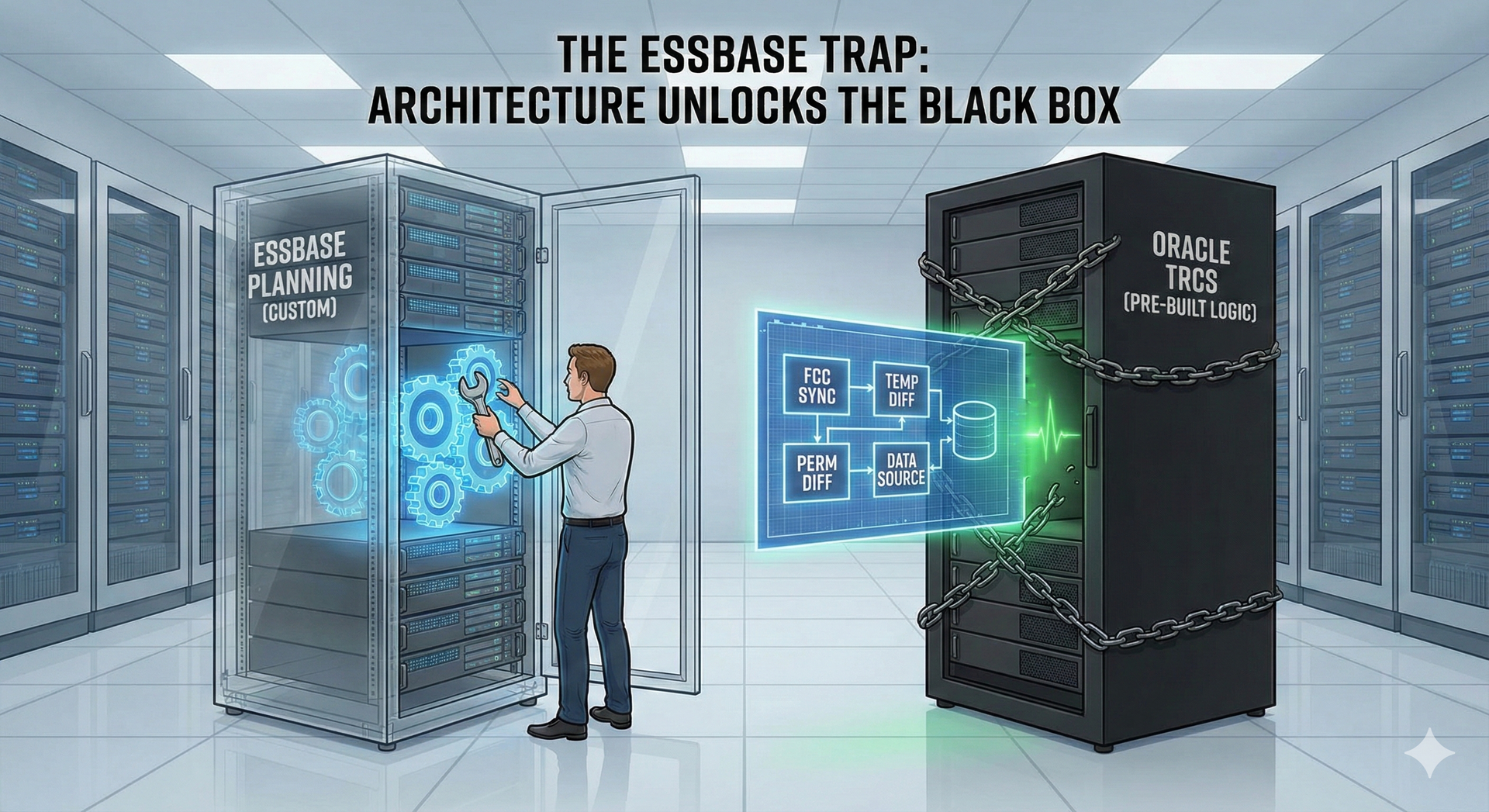Oracle Tax Reporting Expert
We are exceptionally well-equipped to guide you through the implementation of Oracle TRCS.
Our proven track record includes delivering a high-impact Oracle TRCS solution for a regional US bank, where we automated complex tax calculations across 15 entities and 18 states.
We excel at creating Tax Automation rules to streamline Tax Accounts Rollforward reconciliations, including the effective utilization of Current Tax Payable Forms.
Our experience ensures a smooth and efficient implementation process, tailored to your specific needs and compliance requirements.
What we are providing
Drawing upon our extensive experience, we provide our customers with expert guidance and hands-on support to strategically implement and leverage Oracle Tax Reporting Cloud Service (TRCS) for optimized financial processes.
With over two decades of deep expertise in both IFRS and US GAAP, we ensure your tax reporting processes are not only fully compliant but also achieve peak efficiency and accuracy. Furthermore, our specialized knowledge in operational transfer pricing allows us to seamlessly integrate your transfer pricing strategies within your Oracle TRCS solution.
Our comprehensive services include seamless system integration, customized workflow design to meet all regulatory requirements, thorough training for your team, and the development of insightful reporting tools. Our holistic approach delivers a robust tax reporting framework tailored to your specific business needs and international accounting standards, enhancing efficiency, accuracy, and control.
Tax Technology Expert
US GAAP and IFRS
Local jurisdiction expertise
Proven Track Record
How do we work
We provide our Oracle TRCS customers with a comprehensive suite of services designed to optimize their tax reporting processes. This includes:
- Implementation and Configuration: We manage the entire implementation process, tailoring Oracle TRCS to your specific business needs and ensuring seamless integration with existing systems.
- Automation of Tax Calculations: Our expertise allows us to automate complex tax calculations across multiple entities and jurisdictions, significantly reducing manual effort and improving accuracy. We leverage our experience, such as automating calculations across 15 entities and 18 states for a regional US bank.
- Streamlined Reconciliation: We create efficient Tax Automation rules to streamline Tax Accounts Rollforward reconciliations, including the effective use of Current Tax Payable Forms.
- Custom Reporting and Analytics: We develop custom reports and dashboards that provide clear visibility into your tax data, enabling informed decision-making and improved compliance.
- Training and Support: We provide comprehensive training and ongoing support to your team, ensuring they are proficient in using Oracle TRCS to its full potential.
- Continuous Optimization: We offer continuous support and recommendations to ensure your Oracle TRCS implementation evolves with your changing business needs and regulatory requirements.
Our goal is to empower your organization with a robust and efficient Oracle TRCS solution that simplifies tax reporting, reduces risk, and enhances overall financial performance.







